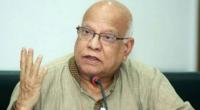 Bangladesh has emerged among the top recipients of foreign direct investment (FDI) from within the Commonwealth and is now the world’s largest market for solar home systems, according to a new trade review released in the lead up to the Commonwealth Heads of Government Meeting (CHOGM) next week.
Bangladesh has emerged among the top recipients of foreign direct investment (FDI) from within the Commonwealth and is now the world’s largest market for solar home systems, according to a new trade review released in the lead up to the Commonwealth Heads of Government Meeting (CHOGM) next week.
‘Commonwealth Trade Review 2018: Strengthening the Commonwealth Advantage’, compiled by the Commonwealth Secretariat, also found that in 2015, Bangladesh was the top recipient of the World Trade Organisation’s Aid for Trade (AfT) to Commonwealth Least Developed Countries (LDCs), followed by Tanzania and Uganda.
“In 2016, Bangladesh, Singapore, Nigeria and Sri Lanka emerged as the other major destinations attracting such FDI from the Commonwealth, whereas Canada, Malaysia, Pakistan and Tanzania lost ground in relative terms,” the report reads.
It says Bangladesh, Brunei, India, Malaysia, Pakistan, Singapore and Sri Lanka accounted for 41.1 percent of the combined total Commonwealth exports of goods and services in 2016, registering a 31.4 percent hike from 2005.
The trade review notes that intra-Commonwealth exports of goods and services stood at $560 billion in 2016 and this trade, as a proportion of global trade, is rising and is now 20 percent of Commonwealth countries’ total trade with the world.
“This underlines the growing significance of Commonwealth markets for many member countries. With world trade growth forecast to rebound in 2017-18, the Commonwealth appears on track to achieve $700 billion in intra-Commonwealth trade in goods and services by 2020, while proactive policy measures can trigger even greater gains,” the report notes.
Intra-Commonwealth trade is projected to reach $700 billion by 2020.
The 2015 report found that Commonwealth countries, on average, tend to trade around 20 percent more and generate 10 percent more investment with each other than with non-member countries.
The 2018 review was undertaken to explore how Commonwealth members, individually and collectively, can strengthen this Commonwealth advantage in two ways: by harnessing new technologies, especially digitisation, to trigger new trade and investment opportunities; and by strengthening certain aspects of their domestic trade governance regime to reduce trade costs further.
“Trade and investment flows among our members are strong and continue to grow. Despite the unexpected contraction in world trade since our 2015 Trade Review, intra-Commonwealth trade in goods and services, and productive ‘greenfield’ investment, is growing fast and projected to exceed USD 1 trillion by 2020,” said Baroness Patricia Scotland, Commonwealth Secretary-General.
The review will feed into the Commonwealth Business Forum deliberations among business leaders and policy-makers from across the 53 member-countries, scheduled in London between April 16-18. Some of the leading Bangladeshi businessmen scheduled to attend include Farhana A. Rahman, Chairperson and CEO of UY Systems Ltd, for a panel on women’s empowerment, and Md. Shafiul Islam, President of the Federation of Bangladesh Chambers of Commerce and Industries, for a panel on Fashion and textiles.
The business forum, alongside parallel Youth, Women’s and People’s Forums, marks a precursor to the Commonwealth Heads of Government Meeting (CHOGM) on April 19-20, to be attended by Prime Minister Sheikh Hasina.
 Business
Business
41475 hour(s) 28 minute(s) ago ;
Evening 10:22 ; Thursday ; Jul 10, 2025
Bangladesh among top recipients of Commonwealth investment: Report
Send
Aditi Khanna, from the UK
Published : 14:00, Apr 12, 2018 | Updated : 20:21, Apr 15, 2018
Published : 14:00, Apr 12, 2018 | Updated : 20:21, Apr 15, 2018
0 ...0 ...
/PDN/ZMI/
Topics: Top Stories
- KOICA donates medical supplies to BSMMU
- 5 more flights to take back British nationals to London
- Covid19: Rajarbagh, Mohammadpur worst affected
- Momen joins UN solidarity song over COVID-19 combat
- Covid-19: OIC to hold special meeting
- WFP begins food distribution in Cox’s Bazar
- WFP begins food distribution in Cox’s Bazar
- 290 return home to Australia
- Third charter flight for US citizens to return home
- Dhaka proposes to postpone D8 Summit
Unauthorized use of news, image, information, etc published by Bangla Tribune is punishable by copyright law. Appropriate legal steps will be taken by the management against any person or body that infringes those laws.
Bangla Tribune is one of the most revered online newspapers in Bangladesh, due to its reputation of neutral coverage and incisive analysis.
F R Tower, 8/C Panthapath, Shukrabad, Dhaka-1207 | Phone: 58151324; 58151326, Fax: 58151329 | Mob: 01730794527, 01730794528






